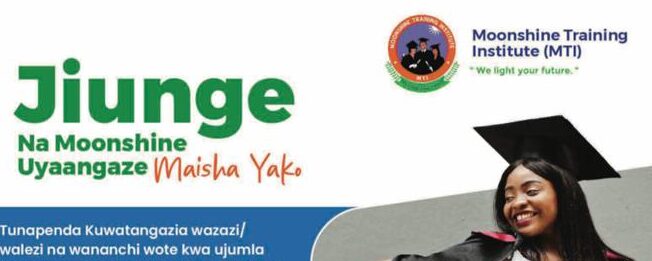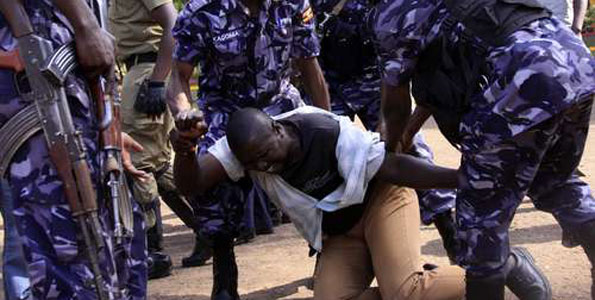
By GAAKI KIGAMBO, TEA Special Correspondent
The brutal treatment by the Uganda police of members of the Forum for Democratic Change, Uganda’s largest opposition party, continues unabated, reinforcing the view that the force’s major task is to protect and preserve the current administration at all costs.
The violence against political opponents, which was seemingly put aside in the 2011 elections, appears to be explained by President Yoweri Museveni’s loss of his key strategist former prime minister Amama Mbabazi who has emerged as a serious challenger.
On October 10, police blocked a convoy of FDC leaders on the Kampala-Mbarara highway. On October 15, the police again cordoned off the homes of Dr Kizza Besigye, FDC’s flagbearer in next year’s elections, and Ssemujju Ibrahim Nganda, the party’s spokesperson.
They had lined up a series of political rallies in eastern Uganda. The men were roughed up, bundled into waiting patrol vans, and taken to unknown locations. Later they were taken to police stations and charged with disobeying lawful orders.
Dr Besigye and Mr Ssemujju were part of the team headed to Rukungiri District to launch a countrywide mobilisation drive. The team included FDC party chair Wasswa Biriggwa, leader of Opposition in Parliament Wafula Oguttu, a number of MPs and other officials. Dr Besigye is set to be nominated as a presidential candidate on November 3.
Led by Rukungiri commandant Hillary Kulayigye, and Maxwell Ogwal who commands the Greater Masaka region where the first altercation happened, the police reportedly claimed that FDC was going to launch campaigns in breach of the roadmap set by the Electoral Commission.
Eight policemen grabbed FDC party official Zainab Fatuma Naigaga, pulled her legs and hands and tore off her clothes. The police have since claimed that she undressed herself.
She had apparently shouted at the police for the way in which they had handled the other opposition politicians.
According to Gordon Mwesigye, the secretary of the Uganda Human Rights Commission, the Saturday event “is yet another of such incidents during which the police used unnecessary force against members of the public.â€
The Uganda Law Society condemned the conduct of police as “an unacceptable, unfortunate and a backward assault on Ugandans by those supposed to protect them.â€
A number of organised groups, including religious leaders, women activists, and human rights defenders have called for swift disciplinary action against the police officers involved and immediate reforms at institutional level.
Sources familiar with the goings-on say that last year’s sacking of Mr Mbabazi — who was President Museveni’s right-hand man for the last four decade — has led to nationwide chaos at the primaries for the ruling NRM party.
There has also been a strong re-emergence of leading opposition figure Dr Besigye. He gave up the presidency of the FDC not long after the 2011 polls, but is now back as the party’s flagbearer.
Nomination of presidential candidates is scheduled for November 3 to 4, while campaigns officially begin a week later on November 9.
According to Andrew Mwenda, a journalist, “President Museveni came to power through violence, and I think at a personal psychological level he feels greater security in violence. Therefore, when he feels insecure in an election period, his first instinct is to retreat to what he knows best, which is warfare. So he thinks this is a war where you need to use violence even if he could use other means,†said the owner of The Independent.
Mr Mwenda was speaking at a public symposium on October 15, during a presentation on the political economy of elections in Uganda.
“Then his handlers are also psychologically smart. They know the only way they can win his favour, demonstrate their faith and loyalty to him, is by beating up his opponents because they are appealing to something deep inside his psychology. To understand the dynamics of election violence is first of all to understand the mindset of our president,†added Mr Mwenda.
OP The East African



Recent Comments